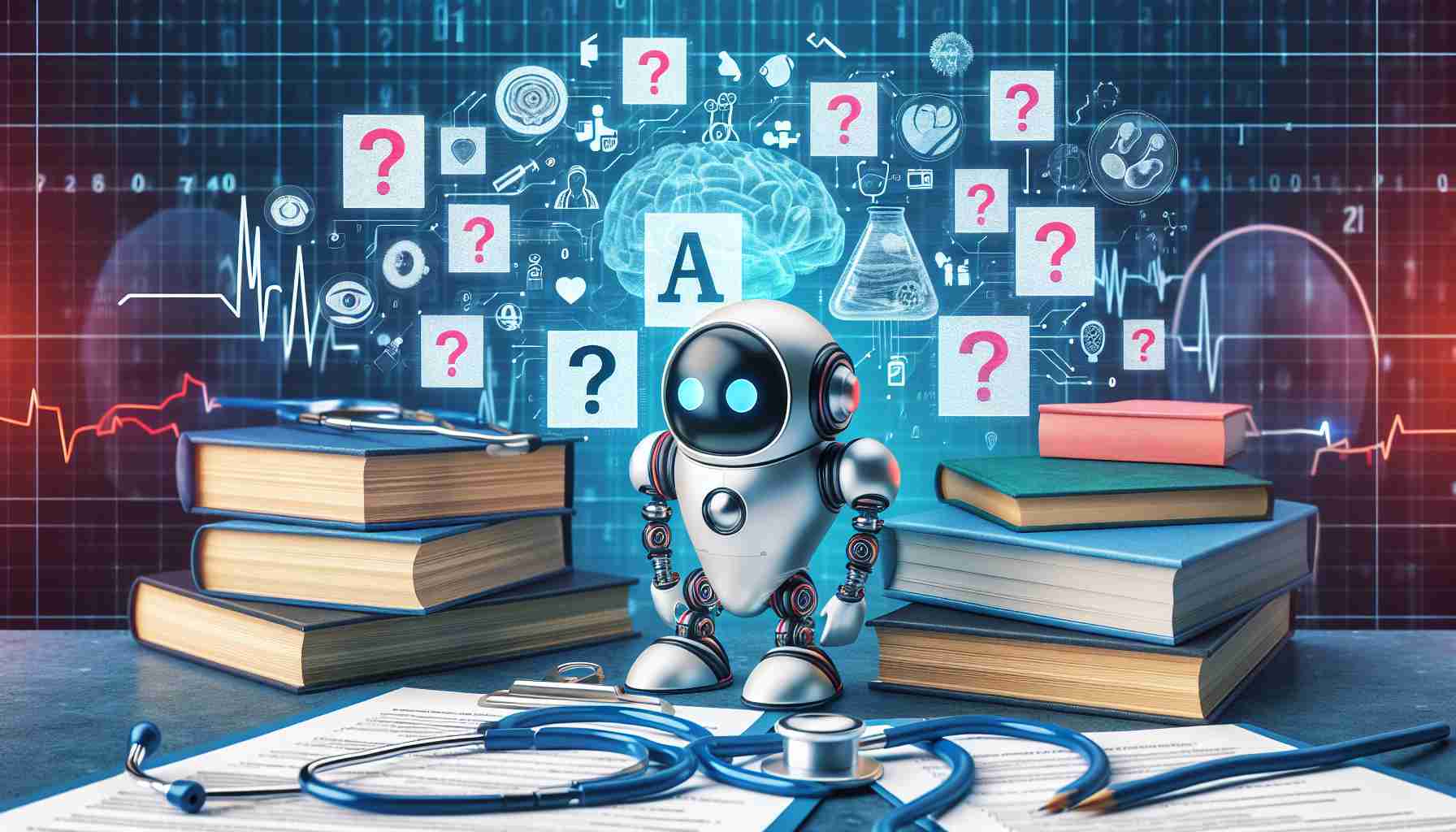Modern AI Shows Promise but Falls Short in Medical Examinations
Despite being a basic language model, Chat GPT turned heads by displaying the capacity to pass the United States Medical Licensing Examination (USMLE) and the European cardiology board exam, according to Dr. Szymon Suwała. However, when it was put to the test within the more specialized domain of internal medicine, the AI’s abilities were further scrutinized.
An In-depth Assessment of Chat GPT’s Medical Knowledge
Dr. Suwała, alongside his research team, embarked on an ambitious project to gauge Chat GPT’s adeptness with questions from 10 sessions of Poland’s National Specialty Examination in Internal Diseases, spanning the years 2013 to 2017. This formidable trial consisted of 1191 questions, providing a robust dataset for evaluation. The AI’s performance, with an average score hovering around 49.4 percent, was below the passing threshold. Specifically, the pass mark is set at 60 percent, and Chat GPT consistently fell below this line in each session.
Varying Performance Across Medical Specialties
An interesting observation arose when the query topics were dissected. Chat GPT demonstrated the most difficulty with cardiology-related questions, where it had just a 43.7 percent success rate. This was followed by endocrinology, focusing on diabetes, at 45.1 percent, and pulmonology at 46.7 percent. Contrasting these weaker areas, the AI showed greater proficiency in allergy-related questions with a notable 71.4 percent correctness, and infectious diseases at 55.3 percent.
The detailed examination by Dr. Suwała’s team sheds light on the current limitations and potentials of AI in the medical field, revealing a need for further refinement before such technology can reliably support healthcare professionals.
The Integration of Artificial Intelligence in Healthcare
Artificial intelligence (AI) holds significant promise for enhancing healthcare delivery across various specialties. Yet, the attempt of AI systems like Chat GPT to undergo rigorous medical specialty exams reveals the complex challenges that AI faces in achieving competence comparable to licensed physicians.
Essential Questions and Answers Surrounding AI in Medicine
One of the most important questions regarding AI in healthcare is: Can AI effectively assist or even replace humans in medical decision-making? The answer remains nuanced. While AI can process and analyze data faster than humans, understanding the context, making nuanced judgments, and possessing the empathy required for patient care are current shortcomings.
What are the key challenges associated with AI in medical specialty exams? The challenges include understanding complex clinical scenarios, reasoning based on incomplete information, and providing ethical considerations in treatment options. There is also the issue of integrating AI confidently within existing legal and regulatory frameworks for healthcare.
Controversies in AI Healthcare Applications
Controversy arises around data privacy, as AI systems require access to large datasets, which may include sensitive patient information. Bias and inequalities present another problem, as AI’s training data can perpetuate existing biases if not carefully curated.
Advantages and Disadvantages of AI in Healthcare
The advantages of AI in healthcare are vast. AI can potentially improve diagnostics, predict patient outcomes, and personalize treatment plans. It can also automate administrative tasks, allowing healthcare professionals to focus more on direct patient care.
However, there are disadvantages. Reliance on AI may diminish the decision-making skills of healthcare workers. Moreover, AI algorithms can make errors, particularly when encountering rare cases or complex multi-system diseases. The potential for these systems to be hacked or malfunction also poses risks to patient safety.
In conclusion, while AI technologies like Chat GPT exhibit impressive capabilities, they still fall short of the expert knowledge and clinical judgment required to pass specialized medical exams. Ongoing research, ethical considerations, data governance, and advances in AI are essential to fully integrating AI into the healthcare sector safely and effectively.
For those interested in further exploring AI applications in healthcare, visiting the websites of leading institutions, such as World Health Organization or National Institutes of Health, would provide a wealth of resourceful information. It’s crucial to ensure that any website visited for medical information is credible and up-to-date.
The source of the article is from the blog bitperfect.pe

